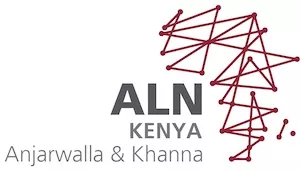- within Technology, International Law and Antitrust/Competition Law topic(s)
- with readers working within the Metals & Mining and Utilities industries
Trust is at the heart of humanitarian action. It is a core tenet to the relationships humanitarian organisations build with the local communities in which their actions are rooted, as well as with donors, both to whom they are accountable.
Deepened trust is a result of an organisation's approach to creating accountability is twofold: downward, to local communities, and upward to donors, governments, boards and management. This accountability calls for organisations to ensure that communities affected by crises are not harmed by the conduct or misconduct of humanitarian organizations and that donor funds are recorded and used in a transparent manner.

Rosa Nduati – Mutero | Managing Partner | ALN Kenya speaking at the 23rd Session of the IFRC General Assembly
During humanitarian emergencies, time is the scarce factor in the trust equation, as humanitarian organisations are judged by their ability to respond effectively in the shortest time possible. The focus is to 'act fast', 'move things along' and 'get it done'. In such situations, the key components which build trust – transparency, credibility and Reliability – can be forgotten.
The current surge in humanitarian action arising from a global increase in crises and disasters has required unprecedented levels of resourcing from humanitarian organisations. Simultaneously, many of these groups are loosening their anti-corruption safeguards, such as due diligence, oversight and accountability mechanisms in the name of achieving rapid impact. Yet, experience has shown that a massive influx of financial flows into humanitarian organisations creates fertile ground for fraud and corruption that can critically weaken the effectiveness of donor interventions, with a disproportionate adverse impact on the most vulnerable groups.
While it can be challenging to mobilise functional units and operate in a transparent manner in the face of war or a natural disaster, humanitarian organisations can be better prepared to proactively act on the issues that impact their integrity by taking some immediate steps to reduce the exposure of their operations. These steps are further elaborated in the below sections.
Factors Contributing to Misconduct in the Humanitarian Sector
Inadequate Preventive Safeguards in Internal Controls
A report by the UK Humanitarian Innovation Hub on the emerging humanitarian priorities in Ukraine between March and May 2022, found that over 1700 informal local aid groups emerged six weeks after the Russian invasion. International organizations looking to support the efforts of the local aid groups were unable to fund local aid groups which did not meet compliance requirements. As a result, funds that could have aided the organizations greatly remained unused. Difficulty in meeting minimum compliance requirements is not an issue specific to Ukraine. It presents one of the key challenges humanitarian organisations face in many parts of the world.
The time and cost involved in setting up processes and controls which meet donor compliance thresholds (including internal controls, adequate processes and procedures, robust due diligence processes, rigorous audit procedures, and effective fraud risk management frameworks) can appear to be a roadblock for new organisations which may lack capacity to do so.Yet, in the absence of adequate internal controls, checks and balances, and accountability systems that make for a compliant entity; humanitarian organisations remain particularly vulnerable to fraud, corruption and misconduct, and by extension, to loss of donor, internal staff and beneficiary trust. In organisations where such systems and processes exist, misconduct can transpire where follow-through is lax, where audit and whistleblowing findings are ignored, and where speedy remedial action is not taken.
Inadequate Preventive Safeguards in Procurement Processes
The need to rapidly respond to crises can pressure humanitarian organisations to ignore preventive safeguards in the procurement process. However, a lack of adherence to such safeguards "in the name of urgency'' increases opportunities for supplier misconduct.
Experts have observed that during emergencies, the likelihood of suppliers substituting good quality goods for lower quality goods is high and leads to the loss of donor trust. When humanitarian organisations fail to: 1) Collect data on the background, experience, capacity and proposed prices of suppliers during the tendering processes 2) Set up emergency procurement processes, their capacity to prevent misconduct and pursue disciplinary action in the wake of wrongdoing is significantly reduced. The absence of close and continuous oversight of procurement contracts and the movement of funds, as well as inspections of purchased and donated supplies, increases the risk of misconduct and endangers lives.
Negative Corporate Culture and Normalisation of Deviance
A negative corporate culture, often resulting from the trickling down of unethical behaviour from the board and senior management teams to employees, decreases trust and accountability and increases opportunities for misconduct. A recent study by the Organisation for Economic Co-operation and Development on bribery and the role of intermediaries, managers and gender, cites involvement by senior management and top executives in more than 55 percent of the cases examined.
Executive and senior management behaviour is the most critical factor in determining whether an organisation's culture would be vulnerable to corruption. This is because employees mirror their management's behaviour. Where such behaviour is unethical, group norms which tolerate corruption at the employee level ensue. Though the trickle-down narrative of unethical leadership is at odds with the dominant "rogue employee under the radar" explanation of wrongdoing, the study reveals that unethical leadership correlates with employee misconduct.
Considerations for Building Trust and Accountability in the Humanitarian Sector
Resourcing and Implementing Reliable Structures
The establishment and implementation of robust control frameworks and rigorous audit procedures is the first line of defence against misconduct.
To curb misappropriation of financial and material support, humanitarian organisations must ensure their financial control structures include budget preparation and requisition approval, purchasing processes, cash receipts, inventory management and disbursement, and operate to the highest standards.
It goes without saying that for humanitarian organisations, social audits are of increasing importance in assessing social impact. Performance of community assessments to ascertain community needs prior to distribution of resources should be accompanied by the subsequent publication of findings in order to increase transparency and accountability. Involvement of beneficiaries in the response efforts and promotion of active listening sessions to obtain feedback creates a social connection which inevitably improves the trust equation. Such sessions also provide invaluable opportunities for humanitarian organisations to make the community aware of the rights and the role they should play in preventing fraud, corruption, exploitation, and abuse.
Finally, robust, regularly updated and widely circulated frameworks which ensure accountability in approval systems are an important tool in preventing bribery and corruption.
Researching
Humanitarian organisations should conduct due diligence and other precautionary checks prior to engaging with volunteers, aid workers, suppliers and partner implementing agencies to obtain some level of assurance on the individuals and entities they intend to work with.
A prerequisite for engagement of an aid worker should be the disclosure of any conflicts and a written reaffirmation of one's commitment to integrity. Supplier due diligence should assess the background and reputation of the supplier, obtain registration details, confirm their track record and ability to implement the programmes with integrity. Such due diligence should cover four areas:
- An assessment of risk management processes for bribery, corruption and fraud.
- Consideration of the supplier's past performance and capacity to deliver.
- An appraisal of financial management and audit processes.
- A quality evaluation of goods the supplier could be subcontracting.
Such measures will go a long way in ensuring beneficiaries receive quality aid. Their effective implementation would promote the building of strong relationships and the maintaining of trust between donors and the implementing NGOs as well as between the implementing NGOs and targeted beneficiaries.
Re-engaging
Ensuring staff members, suppliers and partner implementing agencies are aligned with the organisation's values can be achieved by promoting a culture of accountability, integrity, and trust and by providing adequate training for all entities. Positive organisational culture drives internal compliance and aligns individual interests with the organisation's values.
Rewarding
Adequate rewards foster greater employee engagement, increase retention, and create and promote a culture of integrity. Adequate rewards disincentivise employees from resorting to misconduct and dishonest behaviour which in turn, strengthens trust.
Strengthened trust encourages employees to utilise proper channels to report instances of misconduct, rather than resort to publishing the company's wrongdoing on social media platforms or blogs. This safeguards the company from costly reputational damage repair.
Reporting and Reacting
Effective fraud risk management frameworks also include whistle-blowing lines which allow members of the community to report officials who they know, or suspect are involved in financial or social misconduct.
While many humanitarian organisations have set up hotlines and reporting channels to handle such complaints, a key concern is poor outcomes on investigations and ineffective follow-up on reported issues.
Humanitarian organisations must be seen to take lead in:
- Cutting off employees who do not fit in with the company's culture early enough.
- Investigating allegations of misconduct.
- Quickly fixing process gaps and system faults that cause a rift between the humanitarian actors and the community they serve.
The oversight responsibility for the implementation of these measures rests on the shoulders of a competent and duly appointed board of directors. Such a board would play a pivotal role in setting the organisation's agenda and strategy and would effectively monitor management operations. The board would be accountable to the organisation and stakeholders. Establishment, powers, and responsibility conferred to it should be pegged on best practices defined by OECD guidelines .
Conclusion
Ultimately, robust internal controls and emergency procedures are not additional bureaucracy but measures that allow humanitarian organisations to "maintain control and effectiveness even when moving at high speed". Such measures foster trust and accountability as well as build and sustain the relationships which are at the heart of humanitarian work.
Originally published 28 July 22
The content of this article is intended to provide a general guide to the subject matter. Specialist advice should be sought about your specific circumstances.
[View Source]

